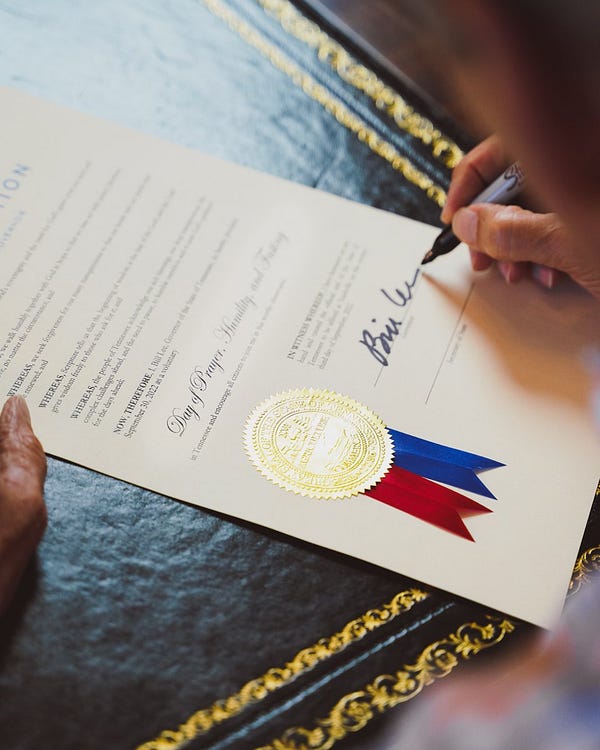For as much as I pay attention to national politics and foreign affairs, I afford very little to local government. For one, the coverage is abysmal, but even if it weren’t, the players lack the panache and sheen of the main stage.
It’s just harder to care about, because, counterintuitively, it’s not front and center all the time. I vote in local elections, but it’s much harder to discern the differences between candidates. I’ve never been to a city council meeting.
My town is getting a public skatepark this year, something I’ve wanted for basically my whole life - and at 31, couldn’t be more excited about - but I didn’t go to a single planning meeting. What’s worse is that the meetings were held where I worked for seven years, and I still didn’t go. In my defense, meetings like that are the exception, not the rule.
And that’s not to say what goes on in your local council doesn’t matter, or that we shouldn’t remain informed about our communities. It’s still somewhat important - you might get a skatepark! - although I’d argue its significance has been rapidly diminishing but that’s an argument for another time.
Recently, Tennessee has been in the headlines for the policies that are the subjects of this week’s column. So, maybe it was the national zeitgeist that led me to go local today, or maybe it was because I’m tired of the banal, unsophisticated interpretations of my home-state’s policies I keep seeing online.
Local media like the Scene and the Tennessean aren’t really all that local anyway. They’re either focused on corporate democrat talking points or subsidiaries of national outlets like USA Today - in the latter’s case, it’s both.
In an alternate universe - should it exist - I’d be writing about the unrest in Israel, Russia’s apparent escalation in Ukraine, Bernie Sanders’ rebuke of equity in favor of equal opportunity, or Texit. But the dye has been cast, I’ve already written the title.
Here we are - or, I am, rather.
Heartbeat Bill
Last summer, when the Supreme Court overturned Roe v. Wade, Tennessee was just one of the several states that had already drafted and passed a bill that would take effect if the decades-old ruling was eventually overturned.
The previous legislation, the Heartbeat Bill, was passed in 2020; it sought to protect unborn children with heartbeats at 6 weeks in the womb, or all unborn children at 8 weeks or older in the womb - despite the presence of a heartbeat.
Let’s pause for a moment to discuss this. It’s all nonsense. Most of the debate around abortion is; it’s all contrivances that are designed to make us feel better about the debate itself. There’s a great bit in HBO’s Veep where presidential candidate Selina Meyer is determining her position on the procedure. She settles for the median amount of weeks chosen from her opponents’ platforms so as not to appear too extreme one way or the other. Again, nonsense.
To be clear, there are only two points in the pro-choice debate that are objective: conception, and delivery. At the moment of conception, a unique genetic code to the entire universe is wrought into existence. Delivery, while still a miracle in itself, is slightly less mystical, as it marks the moment the child leaves the womb for the outside world.
Arguments about what term or week it’s acceptable to terminate an otherwise healthy pregnancy are simply exculpation for the act of rendering something that is into something that is not. Let’s call a fig a fig.


Make sure to check out my recent WWA (Worldwide Wrestling Academy) for more of my thoughts on the matter. But, for now, let’s move on.
Fast forward to the overturning of Roe v. Wade. Upon the Supreme Court’s ruling, the more extreme Human Life Protection Act took assumed precedence. This Act prohibits the abortion of an unborn child anytime after fertilization which, regardless of where you land on the matter, is a much more defensible position.
If you’re on social media, or you know a young person, you’ve likely seen the reaction to the legislation. The people with the purview that the right to abortion is filed under ‘reproductive rights’ or ‘women’s health’ - when it ought to be ‘birthing person’s health’, those bigots - contend that the new bill will put women’s lives in danger.
It won’t. Some people repeatedly claim there are no exceptions granted to the well-being of the mother. There are.
If you’re like me, you heard that doctors would not be permitted to ‘abort’ ectopic pregnancies, or terminate an ‘unviable pregnancy’. Not only does the bill seem to cover this area, I have not found a single instance where this was the case.
I’ve seen, as I’m sure you have, claims that physicians will be reticent to perform these procedures, even if medically required, due to fear of prosecution. Again, I have yet to discover an instance where this occurred. If you do have information pointing to either of these things actually happening, I’d love for you to pass it on my way.
Republican lawmakers, for clarity, are now adding an amendment to the bill, which passed in the State House in February, that will explicitly provide exceptions for ectopic or ‘medically futile’ pregnancies. I look forward to the moment more specific language will be codified into law, because it will make for a much more efficient, honest conversation around the controversial topic.
Like Russian Matryoshka dolls, the previous arguments of the pro-choice side will be removed one by one to finally reveal the true nature of their advocacy, and neither side will be able to hide behind the vagaries of the legislation.
What a Drag
It’s the craze that’s sweeping the red states of the nation. After the rise of Twitter accounts like Libs of Tiktok, and the strangely popular growing phenomenon of ‘drag story hour’, Republican-led legislatures are drafting bills that aim to bar drag performances in front of minors.
This is similar to our first story; we have to parse the language of the bill before we can truly discuss the matter. This is why language is important in all regards. Using imprecise terminology and policy does a couple of things that are to the detriment of society:
It allows your opposition to only respond to the least favorable interpretation of your position and locks you into a perpetual motte-and-bailey routine.
In the case of legislation, it subjects citizens to the whims and inclinations of police officers, prosecutors, and jurors. My lack of faith in these institutions is only compounded the further I go down the line.
Tennessee was the first state in the Union to pass such a law. Over and over, the claim from those opposing the new restrictions claimed that the law was written a way that would vastly overreach its ostensible purpose. Detractors, predominantly from the ideological left, complained that the new stricture would effectively prohibit transgendered Tennesseans from dressing as such in public.
I asked a good friend of mine if he knew if that actually was the case because I had yet to do any research. He didn’t disappoint, he explained that the whole case for and against the new bill hinged upon one word. Prurient.
The bill’s intent and scope, I can only presume, was to prevent children from being exposed to lewd or overtly sexual content in public or private settings. Decency laws like this are already in place in regards to public exposure, and ‘drag’ isn’t specifically mentioned in the bill but is clearly the target.
Maybe this issue is more challenging to legislate. How else should the bill have been drafted? The designation of what is prurient or not is clearly subjective, and I’m sympathetic to those people who think their lifestyles might fall under the discretion of the authorities. Call me a paranoiac, or a student of history, I have a general antagonism toward empowering the government.
When you look at images or video of all ages drag shows, or certain displays at pride parades, it’s self-evident that they’re sexual in nature. And surely, we can all agree that children shouldn’t be unwittingly exposed to such displays? Especially, in public places. But even that is disputed, now. So, that’s where the real disagreement lies.





I’m not sure where I land in the determination of whether or not parents can take their children to a drag event that’s behind closed doors. I’m not comfortable with it, personally, but do you think that’s really the government’s role?
Again, this is the reason why specific, careful language is imperative. The bill isn’t designed to incriminate crossdressers or trans people from going about their business - at least, not ostensibly. The bill is intended to protect children. Our laws must be explicit so that we can deal with the real crux of the matter; if all subjectivity were removed, only two opposing views to the new restrictions can be held; a) it’s not sexual, and it’s good or b) it’s sexual therefore it’s good.
I fear that, in reality, it’s a combination of both. The force that is propelling our culture away from traditional norms is post-kink, post-fetish, and entirely hedonistic. To the proponent of these types of activities, it’s not sexual, it’s expression - while the rest of us can be put out by the expressive gyrating and thrusting.

It’s a shame that any group of individuals feels unjustly targeted by the legislation but I have a proposal. Let’s get some all-ages strip shows and burlesque story hours going so that the drag performers feel less discriminated against. Misery loves company I hear.


Oh, and lastly, there’s this. A huge benefit show is slated for later this month with some really big names in music in order to raise funds for the LGTBQ community. The promptness with which this has happened is nauseating. But I guess it makes sense, it’s not like these artists are busy playing shows raising money for East Palestine, Syria, Armenia, or any other worthy causes. The bill is literally two pages, do you think any of them have read it?
TenneeSSee
We won’t spend too much time on this because there’s not a ton of information available. If there’s an additional reason we have to be careful with the way we present our arguments, it’s this:


It’s disturbing, to say the least. And yes, there will always be a group of bad actors willing to misinterpret something to advance their own ideology. The fact that someone, or someone(s), felt emboldened enough to emblazon the Tennessee border with a swastika is troubling.
Of course, I haven’t ruled out it being fake, but it seems like a lot of effort for someone to go through. Also troubling: it really didn’t cause as much of a stir as I would have expected.
I’m not saying Bill Lee had the nazi group in mind when he signed the law, and he certainly can’t be held responsible for the actions of every group. Although, his yearly proclamation for a Day of Prayer doesn’t exactly help the climate.



Regardless, the swastika flying over Nashville, and the recent National Day of Hate both serve as a reminder that things can always get worse - if we let them.
To a better next week.
Cheers,
~FDA








Thanks Cassie! I hope I offered some valuable insight there, I try not to bloviate too much!
Love this Local edition! Thanks for digging into and interpreting all this for us. Looking forward to next weeks take.